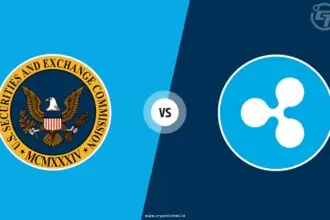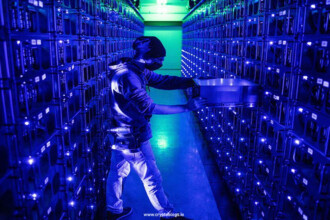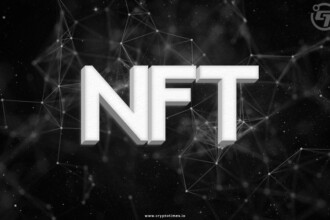Imagine a world where artificial intelligence (AI) operations are not controlled by the government or tech corporations with vested interests but by the people- the actual deserving recipients of this advanced technology. This game-changing innovation is called decentralised AI (DAI).
The past two years have witnessed the entry of centralized AI models like ChatGPT and Google Gemini and their creative abilities have been the talk of town for quite some time. But ever since the arrival of DAI, the tables have turned as the new innovative technology offers limitless potentials.
The ability and level of expansion of centralized AI have been limited to the creative power of the tech companies or developers behind their creation. Decentralised AI, on the other hand, aims to ensure a power shift from the hands of AI corporate organisations to a collaborative network, changing the general understanding of how we develop, deploy, and engage with AI.
But what is decentralised AI? What makes it different from the notable AI we know and use? And what potential does this innovation hold that might reshape our technology landscape are some of the few questions that this article answers.
What is Decentralized AI (DAI)?
Similar to how the Bitcoin movement originated from the goal of establishing a permissionless financial system, decentralised AI seeks to eliminate gatekeeper chokepoints in order to democratise access to AI technologies.
Decentralisation proponents see this as an effective way to monitor the possibility of a centralised AI Frankenstein becoming too powerful for centralised systems to manage. In line with the open-source programming philosophy, it transfers the burden of auditing and data security to a global community.
To this end, many artificial intelligence ventures are teaming up to achieve this decentralised goal. For instance, on August 5, Phala Network, Morpheus, and Exabiis announced their collaboration to build a blockchain-based AI that seeks decentralised technology to address centralised AI model challenges.
Why do we need Decentralized AI?
The amount of available data and user-friendly technologies like ChatGPT, Claude, and Perplexity help machine learning advance. AI will keep getting better as it becomes more common.
By giving models training data, users frequently fail to understand the value they bring to private enterprises just by their use. The possibility for AI to completely undermine almost any professional path financially and the unbalanced financial rewards for users are a few of the many concerns facing centralised AI models
The big question, however, has been what could happen if these expertly educated models fall into the wrong hands.
For instance, OpenAI has been under heavy fire for recent actions, including the release of the much anticipated GPT-4o. Accusations range from voice imitation without consent to prioritizing product over safety, to mention a few.
Differences between Centralized AI and Decentralised AI (DAI)
| Centralised AI | Decentralised AI |
| Centralised systems are vulnerable to assaults and technical malfunctions because they often have a single point of failure. A compromised central server may disrupt the AI system, resulting in data loss and unavailability. | The majority of DeAI systems are built on blockchain, which offers a safe, unchangeable record of all network interactions and transactions. Because of this, it is very difficult for bad actors to change or compromise the system covertly. |
| Large volumes of data are kept on central servers by centralised AI systems, which makes them a target for hacks. Sensitive information could be exposed in a single breach, harming both individuals and organisations irreversibly. | Data is distributed across network thereby minimising the risk of unauthorised access and failure points. |
Challenges of Decentralised AI
DeAI’s reliance on a variety of dispersed data sources is one of its main problems. This might result in disparities in the quality of the data, which makes it challenging to keep AI models accurate and dependable.
Therefore, maintaining data consistency and integrity throughout a network is a crucial task.
DeAI attempts to improve security and trust, but it also adds new vulnerabilities. Because it is distributed, it is vulnerable to many types of attacks, like data poisoning and Sybil attacks, in which bad actors flood the system with fake nodes in an attempt to disrupt it.
Final Thoughts
Decentralised AI promises an interesting perspective to how we relate and use these AI sooner than we expect. However, it is imperative to note that new technologies have challenges especially in their early years of deployment.
While we are waiting for the transformative possibilities and opportunities DeAI promises, it is important you make your own research to be abreast of happenings in the word of AI.
Must Read:
Top Artificial Intelligence (AI) Coins in 2024







